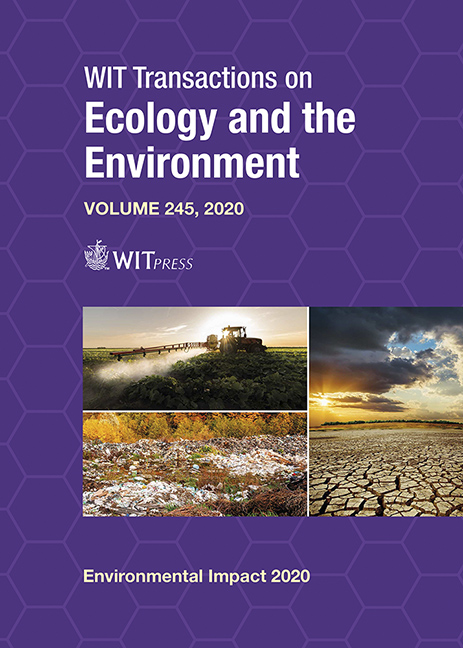POTENTIAL OF PUBLIC OPEN SPACES TO MOTIVATE THEIR USERS TO ENGAGE IN PRO-SUSTAINABLE ACTION
Price
Free (open access)
Transaction
Volume
245
Pages
12
Page Range
165 - 176
Published
2020
Paper DOI
10.2495/EID200161
Copyright
WIT Press
Author(s)
UDO DIETRICH
Abstract
People and their habits, perceptions and actions, are critical to reaching sustainable development goals. This paper investigates the role of public urban spaces in motivating their users to pro-sustainable action. Psychological literature is used to select methods of how to motivate people. It describes the triggers for our activities. Of first priority is the target that activities should not have detrimental consequences for us personally or for our family and close friends. Of secondary priority are activities that might lead to an improvement in quality of life, but here the decision is not always clear and we often hesitate to act. We are also guided by orienting our activities according to common rules, norms and standards. To be regarded as a good citizen can be a strong motive. The adaptation of these motives to sustainability shows several potentialities while also avoiding detrimental consequences. Here the circle of those involved is much larger — it comprises the entirety of mankind and also future generations. Because we do not see the immediate advantage to us and our inner circle, we may hesitate to take important actions. These methods are applied to the special case of public open spaces where the fact that they are a common good can be used to advantage. The basic principle is to utilize and develop positive emotions tied to sustainable urban interventions and to avoid reactance effects. Detailed recommendations for interventions (fostered by an administrative body) are derived. Furthermore, the paper provides policy guidelines to increase involvement of citizens through tailor-made strategies by the activation of cooperative mechanisms in public urban spaces. Selected examples of two cities, Hamburg and Nice, were collected and analyzed according to these recommendations.
Keywords
public open spaces, pro-sustainable action, motivation, SDG, common good, mechanisms of cooperation, policy guidelines





